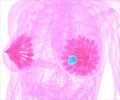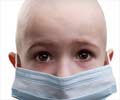Female survivors of childhood cancer, previously exposed to chest radiation and other cancer-related treatments, benefit from early screening with breast MRI or mammography. It will reduce mortality risk due to the disease.

‘Screening at 25 years of age with annual mammography along with MRI averts death by 56 percent to 71 percent, and screening with annual MRI, but without mammography averts 56 percent to 62 percent of deaths.’
Read More..




These findings highlight the importance of MRI in reducing deaths from breast cancer in this population. A comparative modeling study is published in Annals of Internal Medicine.Read More..
Female survivors of childhood cancer who have been exposed to chest radiation are at significantly increased risk for breast cancer. Surveillance with annual mammography and MRI is recommended for this population, yet benefits, harms, and costs are uncertain.
Researchers from Boston Children's Hospital used data from the Childhood Cancer Survivor Study and two breast cancer simulation models from the Collaborative Intervention and Surveillance Modeling Network (CISNET) to estimate the benefits, harms, and cost-effectiveness of breast cancer screening strategies in childhood cancer survivors.
They found that compared with no screening, starting screening at age 25 with annual mammography with MRI averted the most deaths (56 percent to 71 percent) and annual MRI (without mammography) averted 56 percent to 62 percent of deaths.
When costs and quality of life were considered, beginning screening at age 30 was preferred given commonly cited cost-effectiveness thresholds.
Advertisement
Source-Eurekalert














